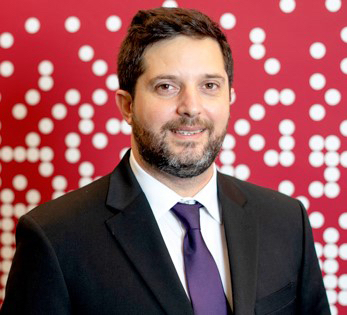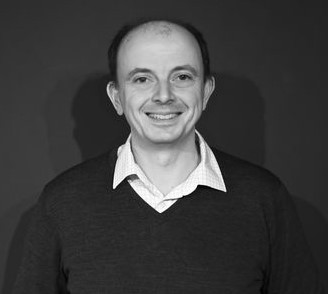OAT workshop 2023, Shanghai, China
OAT workshop 2022, New Zeeland
Physics-based character animation for Virtual Reality
Joan Llobera, Caecilia Charbonnier
https://joanllobera.github.io/marathon-envs/
Honorary Award Open Source tools: PSI and RagRug projects
Rag-Rug: An Open Source Toolkit for
SituatedVisualization and Analytics
Dieter Schmalstieg, Philipp Fleck
(Invited from TVCG paper)
https://github.com/philfleck/ragrug
Developing Mixed Reality Applications with Platform for
Situated Intelligence
Sean Andrist, Dan Bohus, Ashley Feniello, Nick Saw
https://github.com/microsoft/psi
11:00 am NZDT Time Zone Converter
(15 MINS) Rag-Rug: An Open Source Toolkit for
Situated Visualization and Analytics
Dieter Schmalstieg, Philipp Fleck
(Invited from TVCG paper)
https://github.com/philfleck/ragrug
(15 MINS) Developing Mixed Reality Applications with Platform for
Situated Intelligence
Sean Andrist, Dan Bohus, Ashley Feniello, Nick Saw
https://github.com/microsoft/psi
(7 MINS) STAG: A Tool for realtime Replay
and Analysis of Spatial Trajectory and Gaze Information captured in Immersive
Environments
Aryabrata Basu
(7 MINS) Excite-O-Meter: an Open-Source
Unity Plugin to Analyze Heart Activity and Movement Trajectories in Custom VR
Environments
Luis Quintero, Panagiotis Papapetrou, John
Edison Muñoz Cardona, Jeroen de De
mooij, Michael Gaebler
https://github.com/luiseduve/exciteometer/
PANEL on data capture and situated intelligence (15
min)
The presenters of this session will be moderated by Dr. Mar
Gonzalez Franco and discuss problems such as standardization and best
practices.
Break (6 mins)
Perception and Cognition
12:05 pm NZDT
(10 MIN) An Open Platform for Research about Cognitive Load in
Virtual Reality
Olivier Augereau, Gabriel Brocheton, Pedro
Paulo Do Prado Neto
 https://git.enib.fr/g7broche/vr-ppe
https://git.enib.fr/g7broche/vr-ppe
(5 MIN) Human Vision vs. Computer Vision: A Readability Study in a
Virtual Reality Environment
Zhu Qing, Praveen Edara
(10 MIN) Asymmetric Normalization in Social Virtual Reality Studies
Jonas Deuchler, Daniel Hepperle, Matthias
Wölfel
< br/>
Authoring and Access
12:30 pm NZDT
(10 MIN) BabiaXR: Virtual Reality software
data visualizations for the Web
David Moreno-Lumbreras,
Jesus M. Gonzalez-Barahona, Andrea Villaverde
 https://babiaxr.gitlab.io/
https://babiaxr.gitlab.io/
(10 MIN) RealityFlow: Open-Source
Multi-User Immersive Authoring
John T Murray
(10 MIN) NUI-SpatialMarkers: AR Spatial
Markers For the Rest of Us
Alex G Karduna, Adam Sinclair
Williams, Francisco Raul Ortega
Break (5 mins)
Avatar Tools
13:05 NZDT
(10 MIN) Physics-based character animation for Virtual Reality
Joan Llobera, Caecilia Charbonnier
 https://joanllobera.github.io/marathon-envs/
https://joanllobera.github.io/marathon-envs/
(10 MIN) HeadBox: A Facial Blendshape Animation Toolkit for the Microsoft Rocketbox Library
Matias Volonte, Eyal
Ofek, Ken Jakubzak, Shawn Bruner, Mar Gonzalez-Franco
https://github.com/openVRlab/Headbox
(10 MIN) Integrating Rocketbox Avatars with
the Ubiq Social VR platform
Lisa Izzouzi, Anthony Steed
https://github.com/UCL-VR/ubiq
13:35 pm NZDT
Open discussion with all participants on https://www.gather.town/ on how to create,
share and centralize better research tools.
13:55 NZDT
Closing notes and awards (also on Gather.town)

Mar Gonzalez-Franco, Microsoft Research
margon@microsoft.com @twi_mar
Dr. Mar Gonzalez-Franco is a Principal Researcher in the EPIC - Extended Perception, Interaction and Cognition group. She explores human behaviour and perception to build better technologies in the wild. With a particular focus on spatial computing, avatars and haptics. She is a strong believer in open platforms and public libraries. To democratize the field she has been behind the release of libraries such as the Microsoft Rocketbox avatar library and its sister animation toolkit the Movebox. She has also had a m prolific scientific output (website), and her work has transferred to products used daily around the world, like Hololens, Microsoft Soundscape and Together mode in Microsoft Teams. Mar is a Computer Scientist and also holds a PhD in Immersive Virtual Reality and Clinical Psychology from Universitat de Barcelona. Before joining Microsoft she was at Airbus, the MIT, and University College London.

Matias Volonte, Northeastern University
m.volonte@northeastern.edu
Dr. Matias Volonte is currently a Postdoctoral Research Associate at the Department of Computer Science at Northeastern University. He is working with Dr. Tim Bickmore from the Relational Agents Group. Currently, Matias is investigating the use of virtual agents in which human-agent relationships improve task outcomes in the healthcare domain. Matias is interested in researching simulated face-to-face conversations with an emphasis on the relational and conversational aspects of these interactions. In his Ph.D. at Clemson University, Matias studied human and virtual human interaction in immersive and non-immersive environments with Dr. Sabarish Babu.

Anthony Steed, University College London
a.steed@ucl.ac.uk @anthony_steed
Prof. Anthony Steed is Head of the Virtual Environments and Computer Graphics (VECG) group at University College London. Prof. Steed’s research interests extend from virtual reality systems, through to mobile mixed-reality systems, and from system development through to measures of user response to virtual content. He has worked extensively on systems for collaborative mixed reality. He is lead author of a review “Networked Graphics: Building Networked Graphics and Networked Games”. He was the recipient of the IEEE VGTC’s 2016 Virtual Reality Technical Achievement Award.

Cheng Yao(Eric) Wang, Cornell University
cw776@cornell.edu @ericwang0701
Cheng Yao (Eric) Wang is a Ph.D. candidate in Information Science at Cornell University advised by Prof. Andrea Stevenson Won. His research interests lie at the intersection of Human-Computer Interaction (HCI), Computer-Supported Cooperative Work (CSCW), and Virtual/Mixed Reality (VR/MR). Previously, he was a research intern at Autodesk, Microsoft Research, and Facebook Reality Lab. In his Ph.D. research, he has implemented and utilized the unique capabilities of 3D reconstruction techniques in different research areas such as reliving experiences, customizing and animating avatars in VR, and adaptive AR/MR user interface, as well as identifying its privacy concerns and challenges.
Virtual Reality technologies are growing fast, and so is the VR research community. In this scenario, it is more important than ever that academic research builds upon best practices and results to amplify impact in the broader field. Open-Source tools are one means to propagate best practice as they lower the barrier to entry for researchers from an engineering point of view, while also embodying the prior work on which the tools were built. Open access tools are also critical to eliminate redundancies and increase world research collaboration in VR. At a time that academic research is growing it also needs to move as fast as the industry, collaboration and shared tools is the best way to do it.
Driven by uptake in consumer and professional markets, virtual reality technologies are now being developed at a significant pace. Academic research needs to build upon best practice and results if it is to generate generalizable results that have impact in the broader field. Open-Source tools are one means to propagate best practice as they lower the barrier to entry for researchers from an engineering point of view, while also embodying the prior work on which the tools were built. Open access tools are also critical to eliminate redundancies and increase world research collaboration in VR. At a time that academic research needs to move as fast as the industry, collaboration and shared tools is the best way to do it.
In this workshop, we will gather with creators and users of open-access libraries ranging from avatars (like the Microsoft Rocketbox avatar library) to animation to networking (Ubiq toolkit) to explore how open access tools are helping advance the VR community.
We invite all researchers to join this workshop and learn from existing libraries. We also invite submissions on technical and systems papers that describe new libraries and or new features on existing libraries.
In this workshop, we will explore these open-access tools, their accessibility, and what type of applications they enable. Finally, we invite users of current libraries to submit their papers and share their learnings while using these tools.
All papers and repos will be collected and curated in the workshop website https://openVRlab.GitHub.io.
- Open source libraries and tools (from avatars to AI to tracking to networking)
- Research libraries and tools
- New tools, new features, new repos
- Usage of libraries/tools
Submissions should include a title, a list of authors, and be 2-4 pages. All paper submissions must be in English. All IEEE VR Conference Paper submissions must be prepared in IEEE Computer Society VGTC format ( https://tc.computer.org/vgtc/publications/conference/) and submitted in PDF format. Accepting work of Research papers, Technical notes, Position papers, Work-in-progress papers. The accepted papers will be featured in the IEEE Xplore library. Additional pages can be considered on a case by case basis, but you should check with the workshop organizers (margon@microsoft.com) before the submission deadline. Acceptable paper types are work-in-progress, research papers, position papers, or commentaries. Submissions will be reviewed by the organisers and accepted submissions will give a 10-minute talk with a panel discussion at the end of the session. At least one author must register for the workshop. Selected submissions will get the opportunity to be extended to articles to be considered for a special issue.
To submit your work, visit https://new.precisionconference.com/vr
The organizers will review all the submissions.- Submission deadline: January 17
- Notification of acceptance: January 20
- Camera-ready deadline: January 29
- Workshop: March 12